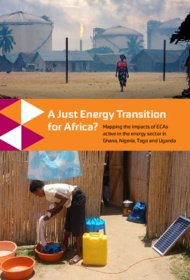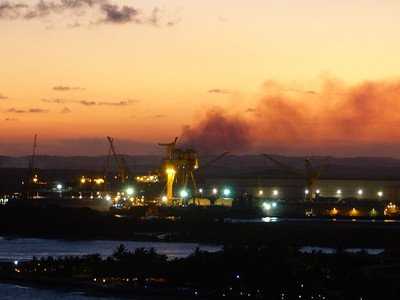Suape: port expansion threatens paradise
Two projects insured by Atradius DSB in the Brazilian port of Suape have caused serious social problems and environmental damage. Both ENDS is helping the local people to obtain justice.
'Suape' means 'crooked paths' in the indigenous Tupi language, after the streams and rivers around the port area meandering their way to the sea. The coastal strip comprises mangrove forests, dotted with white sandy beaches. The coral reef that lies just offshore is a favourite spot for diving and snorkelling. A considerable part of the expansive port area, in which an estimated 25,000 people live, is a formally protected Atlantic rainforest.
Besides being a natural paradise, Suape is a growing centre of trade and commerce. With its strategic location on the eastern point of Brazil's coast, the port is an important pillar of the economy of the state of Pernambuco. However, rather than development and prosperity, the port mainly brings the local people violence, poverty and environmental damage.
Port expansion with Dutch support
In 2011 and 2012, Dutch dredging company Van Oord acquired two contracts in Suape: to dredge the entrance to a new shipyard to be built in the port, and to further deepen access to the port from the sea to allow the largest oil tankers to reach a newly built oil refinery. For these projects, Van Oord took out export credit insurance with Atradius DSB, the Dutch state's export credit agency.
International rules for companies and export credit agencies
Both companies and credit insurers must adhere to internationally agreed social and environmental rules when implementing projects. Within the Organisation for Economic Co-operation and Development (OECD), Atradius DSB made agreements, together with other export credit agencies, known as the 'Common Approaches for Officially Supported Export Credits'. In addition, internationally operating companies like Van Oord – and Atradius DSB itself – have to observe the OECD Guidelines for Multinational Enterprises. Atradius DSB demands that its clients comply with the OECD Guidelines and has also drawn up its own criteria for international corporate social responsibility (ICSR), with which companies or projects have to comply to be eligible for export credit insurance.
Both ENDS has been monitoring Atradius DSB for a number of years to determine whether the activities it insures on behalf of the Dutch government are conducted according to the rules and are not harmful to people or the environment. In 2012, Both ENDS conducted a study of the situation in Suape. The study showed that activities carried out by Van Oord for the local port authority were having a dramatic impact and that the local situation had not been adequately taken into account in the decision-making on these dredging projects. By nevertheless providing export credit insurance, Atradius DSB had fallen short on its duty of care.
Environmental damage
To deepen access to the port, the seabed was blown up with explosives. In addition, according to local fishermen, dredging waste was dumped in ecologically irresponsible sites. That not only destroyed the coral, but depleted fish stocks, by as much as 80-90% according to local sources. Traditional communities that have for many generations made a living from fishing, collecting crabs and shellfish, and cultivating fruit trees have seen their sources of income decline rapidly. In the port area, mangrove forests have been replaced by docks. This has disrupted the local water system to such an extent that people increasingly suffer from floods, while surface water has become unusable due to contamination and sedimentation.
Violent evictions
Armed security personnel employed by the port authorities are intimidating local residents. They force people to leave their homes and land under threat of violence. These people have to find somewhere else to live, without receiving any significant compensation. They often move to remote and infertile areas, where they can hardly make a living, if at all. They also run the risk of having to move again because they have no legal right at all to their meagre replacement accommodation.
The militia regularly destroys the property of local fishermen, and people who have been driven from their homes are denied access to abandoned farmland. The last resident of the island of Tatuoca, which lies immediately adjacent to the basin dredged out by Van Oord for the shipyard, was forcefully driven out of his home in April 2016 by the Suape private militia. His house and the simple restaurant he ran were immediately bulldozed to the ground, forcing the man to give up his livelihood.
Forum Suape
Local residents and civil society organisations have united in the 'Forum Suape'. Both ENDS works closely with the Forum, helping with capacity building and fundraising. The Forum coaches and trains the residents of the Suape port area, so that they can participate in discussions on more socially and environmentally friendly developments in the region. The Forum also monitors the violence and brings it to public attention in the media. Together with the Forum, Both ENDS informed Atradius DSB, Van Oord and Dutch politicians about the abuses, but these first initial attempts did not lead to them entering into the desired dialogue with local stakeholders.
Complaint against Van Oord and Atradius DSB submitted to NCP
In September 2014, Both ENDS, SOMO and Forum Suape organised a seminar to explore the options, together with local civil society and residents' organisations, for making use of official complaints procedures to address the harmful social and environmental effects of the dredging activities in Suape.
That led to a formal complaint against Van Oord, Atradius DSB and the Suape port authority for alleged violations of the OECD Guidelines. The complaint was submitted to the National Contact Points (NCPs) for the OECD Guidelines in Brazil and the Netherlands. The Brazilian NCP decided to focus on the complaint against Van Oord, while the Dutch NCP concentrated on the complaint against Atradius DSB. The complaint against the port authority was declared inadmissible because it is not a multinational enterprise.
The Dutch NCP issued its final statement on the complaint against Atradius DSB at the end of 2016. The NCP stated that Atradius DSB should ensure that its clients observe social, environmental and human rights, also after it has provided export credit insurance, and should ensure that complaints are dealt with correctly.
Both ENDS will certainly continue to monitor Atradius DSB closely to ensure it complies with this ruling, and continues to support the Forum Suape in further developments surrounding the complaint submitted to the Brazilian NCP. In the meantime, we are encouraging a dialogue in Suape between Van Oord and local fishermen and their representative organisations.
For more information
Read more about this subject
-
Dossier
Uganda’s Energy Future
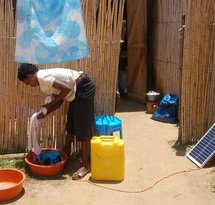
Despite the existence of many hydropower dams, foreign investments and large government spending on energy, and new plans for hydropower, oil and gas projects, the vast majority of rural Uganda still remains without electricity. Together with our local partners we are striving towards a sustainable energy strategy for Uganda that starts from the needs and wishes of local communities.
-
Dossier
Gas in Mozambique
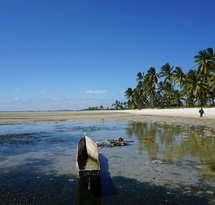
In 2011 one of the world’s largest gas reserves was found in the coastal province of Cabo Delgado, in the north of Mozambique. A total of 35 billion dollars has been invested to extract the gas. Dozens of multinationals and financiers are involved in these rapid developments. It is very difficult for the people living in Cabo Delgado to exert influence on the plans and activities, while they experience the negative consequences. With the arrival of these companies, they are losing their land.
-
Dossier
Export Credit Agencies: Who pays the price?
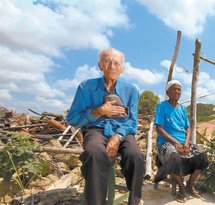
Both ENDS calls on the government only to provide export credit insurance to sustainable projects that cause no social and/or environmental damage in the countries where they take place.
-
Dossier
Large-scale infrastructure
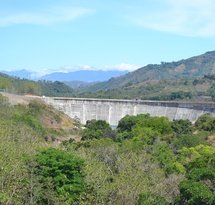
Large-scale infrastructural projects have detrimental effects on local people and the environment, while their benefits are felt elsewhere. Both ENDS is working to ensure that local people have a greater say in decision-making and is investigating the way these projects are funded.
-
Dossier
Paris Proof Export Support
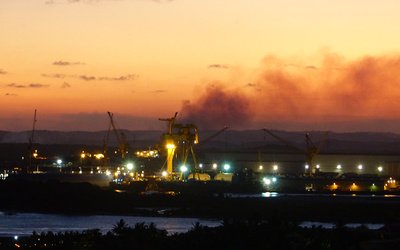
Almost two-thirds of the export credit insurances that Atradius DSB provided in the 2012-2018 period went to the fossil energy sector. That is contrary to the climate agreements that the Netherlands signed in Paris.
-
News / 4 November 2022
Both ENDS to attend climate conference in Egypt
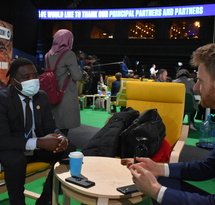
Climate action is urgently needed to slow down global warming. The effects of climate change are already showing themselves. Floods in Pakistan and closer to us, in the Netherlands, are causing loss of life and much emotional and economic damage, while local climate solutions are still largely being ignored. That's why Both ENDS is going to participate in COP27, the climate conference in Sharm El Sheikh, Egypt.
-
External link / 24 August 2022
A breakthrough in finance, a break with fossil fuels (Annual Report 2021)
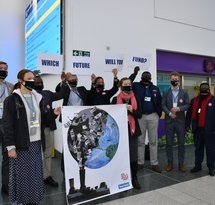
Both ENDS works with partners worldwide to amplify the voices of communities that are experiencing first-hand the devastating social and environmental impacts of unsustainable financial policies and practices – from climate change to pollution to forced displacement. For more than two decades, we have worked to draw attention to an obscure, yet hugely influential type of financial institution: export credit agencies (ECAs).
-
News / 19 May 2022
Response to government’s letter to parliament on implementation of the Glasgow Declaration
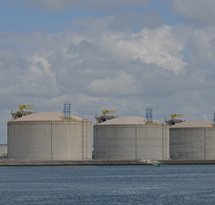
Both ENDS and 95 other organisations* today sent a letter to State Secretary for Finance Marnix van Rij and Minister for Foreign Trade and Development Cooperation Liesje Schreinemacher calling on them to implement the Glasgow Declaration in full. In this agreement, which the Netherlands and 33 other countries signed at the Glasgow climate conference, the signatory countries pledge to stop all public funding for fossil projects by the end of 2022.
-
Press release / 19 May 2022
122 CSOs warn signatory countries they have only six months left to meet COP26 commitment to end international public finance for all fossil fuels
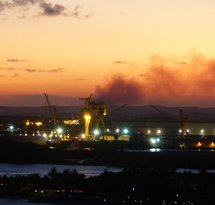
Today, 122 civil society groups are releasing letters to eleven government signatories to the Glasgow Statement on International Public Support for the Clean Energy Transition, laying out the actions they must take as soon as possible to meet their commitment. In this joint statement at COP26, 35 countries and 5 public finance institutions committed to end their international public finance for 'unabated' fossil fuels by the end of 2022, and instead prioritise their "support fully towards the clean energy transition."
-
News / 6 January 2022
How the mangroves in Suape are growing back
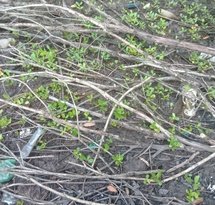
"The mangroves were choking, gasping for air. When the dam was partially opened, they could finally breathe again. It was the breath that the animals, the fish in the rivers, the crabs, shrimps and oysters had all been craving."
On the northeast coast of Brazil, activities have been underway since 2007 to develop and extend the port of Suape. The port is being developed partly to support oil drilling along the Brazilian coast. The project is controversial because of the disastrous impact it is having on the natural environment, the rivers, the mangroves, marine life and the people who have lived in the region for many generations. Together with Fórum Suape, specially set up to combat the development of the port, Both Ends has been working for almost ten years to protect the rights of local communities in and around Suape. Now there has been a breakthrough – literally. In August of last year, a controversial dam in the Rio Tatuoca that was destroying the mangroves and the aquatic life in the area was partially dismantled. We spoke to Mariana Vidal,* project coordinator at Fórum Suape, about how that came about and what changes have taken place in the area since.
-
News / 21 December 2021
Two generations fighting against climate change in Ghana: meet our partners Richard and Kenneth
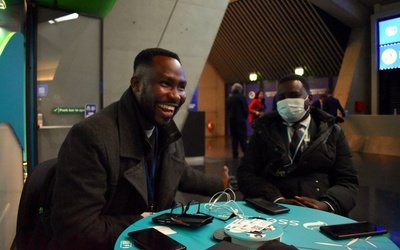
In Ghana, the effects of climate change are already tangible, just like in many countries around the world. How to ensure that these different experiences are heard and known by the Ghanaian government so that it will take actions that have a positive effect on people and their environment? And how to make local communities aware that they can hold the government accountable - and even have the responsibility to do so? During COP26 in Glasgow we spoke with Kenneth Nana Amoateng (47) and Richard Matey (30). Kenneth works at the AbibiNsroma Foundation, a local NGO, and took it as his mission to advocate for a healthy environment, climate change, and to give young people opportunities. Richard is part of that younger generation and works at the Alliance for Empowering Rural Communities in Ghana.
-
Event / 4 November 2021, 16:45 - 18:00
UNFCCC COP 26 side event ‘Aligning export finance with the Paris Agreement: high time to phase out fossil fuels’
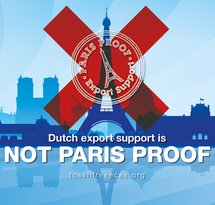
Many countries heavily support fossil fuel investments abroad through their export credit agency (ECA). This contributes to carbon lock- in, whereby companies or even countries commit themselves to a certain amount of greenhouse gas emissions for the lifetime of the infrastructure — oftentimes years or even decades. This seriously delays the transition to renewable energy sources, and is certainly not in line with Art. 2.1c of the Paris Agreement.
Highlighting the impacts caused by export finance in the global South, this side event will provide concrete recommendations to decarbonize export credit agencies.
-
News / 15 October 2021
German research confirms: Dutch Export Credit Agency is not Paris Proof
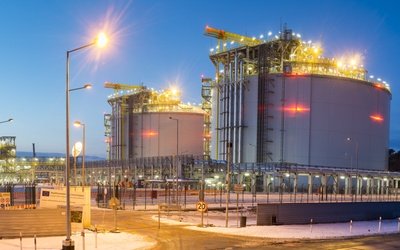
The Dutch export credit agency Atradius DSB is not aligned with the Paris Climate Agreement; on behalf of the Dutch State, it continues to strongly support investments in fossil fuels. This is the conclusion of a report by German research agency Perspectives Climate Research (PCR), in which the export credit agencies of the Netherlands and Japan are measured in terms of their climate ambitions and alignment with the Paris Agreement.
-
News / 12 July 2021
WOB applications relating to export support for gas project in Mozambique
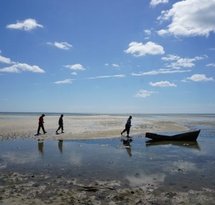
At the beginning of this year, the Dutch government provided Dutch companies with export insurance worth 903 million euros to enable them to participate in a gigantic natural gas project in the north of Mozambique. Together with partners from Mozambique and the Netherlands, Both ENDS has been conducting a dialogue with export credit agency Atradius DSB and the responsible Ministries of Finance and Foreign Affairs on the possible financial, environmental and social risks of the gas project.
-
News / 4 May 2021
Is the Netherlands’ export credit insurance support for fossil projects legal?
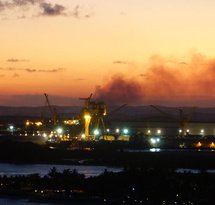
Today, two independent experts brought out a legal opinion on the obligations of countries and their export credit agencies under international law in relation to export support for fossil fuels. According to the report, emissions by fossil fuels and the related infrastructure need to be reduced urgently.
-
Press release / 11 November 2020
Export support for dirty energy in Africa
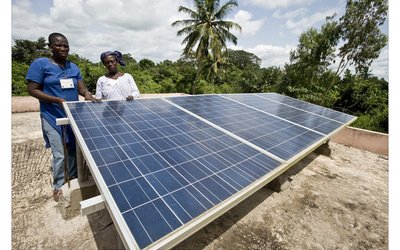
Since the signing of the Paris Climate Agreement, rich countries have provided almost 50 times as much export support for fossil fuel related projects as for clean energy projects in four African countries. This is the conclusion of a report written by five environmental organisations from Ghana, Nigeria, Togo and Uganda, in cooperation with Friends of the Earth Netherlands and Both ENDS. The rich countries insured energy projects with a total value of 11 billion US dollars through their export credit agencies (ECAs). More than half of this export support is related to fossil fuels. Only 1% went to sustainable renewable energy.
-
Publication / 11 November 2020
-
Blog / 7 July 2020
Blind spot for Northeast Brazil makes local organisations indispensable
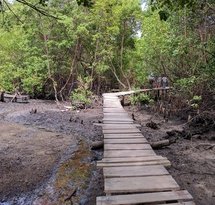 By Eva Schmitz
By Eva SchmitzPernambuco, is in the extreme northeast of Brazil, is one of the country's poorest regions. One of the most important projects aimed at stimulating development in the state is the expansion of the deep-sea port of Suape, complete with an oil refinery and shipyards. The port covers an enormous area; at 13,500 hectares it is bigger than all the different sites of the port of Rotterdam together. Unfortunately, the port lies in the middle of an exceptional and vulnerable ecosystem of mangrove forests and Atlantic rainforest, which are under serious threat from the expansion. Furthermore, the livelihoods of the approximately 25,000 people living in the area are at risk. Most of these people are so called 'traditional communities' of artisanal fisher folk including a number of Quilombola communities whose inhabitants are descended from enslaved people who have lived in this lands for hundreds of years. The communities' fishing catch is visibly declining as a consequence of industrial pollution, the most serious case of which was the oil spill that badly affected the whole coast of Northeast Brazil at the end of last year.
-
News / 30 June 2020
Extra export support from the government must stimulate green growth
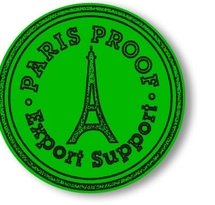
Almost 40 civil society organisations and networks from around the world, including Both ENDS, today sent a letter to Dutch Minister for Foreign Trade and Development Cooperation Sigrid Kaag and State Secretary for Finance Hans Vijlbrief. They are asking the ministers to ensure that the expansion of export credit insurance as a result of the Corona crisis contributes to a green recovery.
-
Letter / 29 June 2020
Letter: Extra export support from the government must stimulate green growth
Almost 40 civil society organisations and networks from around the world, including Both ENDS, today sent a letter to Dutch Minister for Foreign Trade and Development Cooperation Sigrid Kaag and State Secretary for Finance Hans Vijlbrief. They are asking the ministers to ensure that the expansion of export credit insurance as a result of the Corona crisis contributes to a green recovery.

